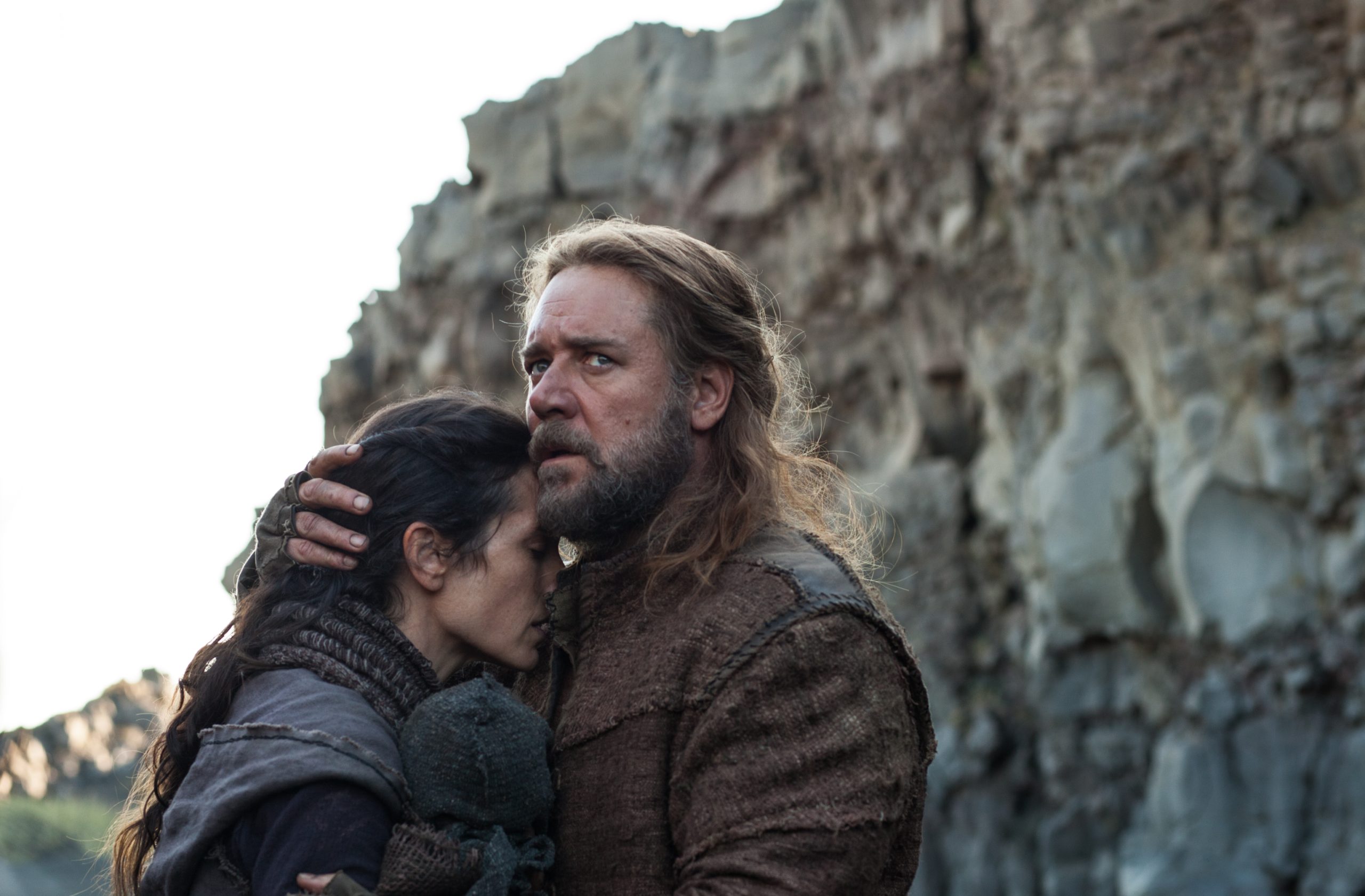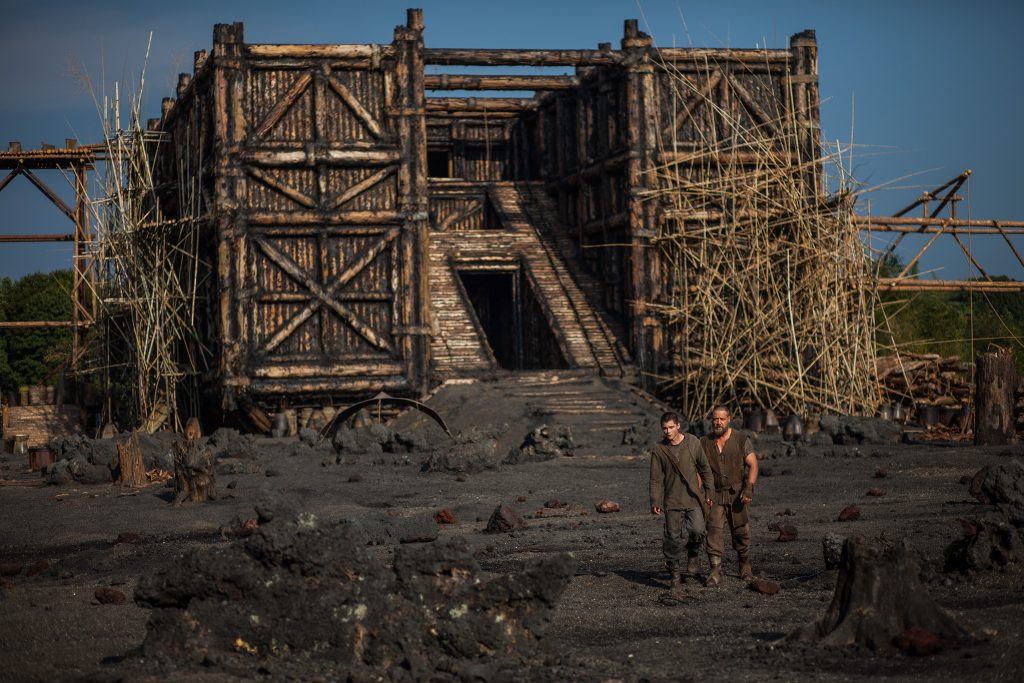
Noah, which marked its tenth anniversary back in March, draws from the biblical story of Noah and plays things way too loose with the text.
I’m religious and come from a Modern Orthodox Jewish background. It probably should come as no surprise that my knowledge of the text is what informs my perspective about my feelings of the film. There are characters and situations that screenwriters Darren Aronofsky and Ari Handel invent solely for the film. In some instances, it’s a complete invention altogether. There are other cases where they do a complete misreading of the Torah, let alone commentaries. It’s because of this that I found myself asking why am I putting myself through watching the film again? If it weren’t for this year’s earlier tenth anniversary, I probably wouldn’t have bothered. Noah plays way too loose with the text to be a satisfying film, no matter how hard it tries.
Where I do not dispute the film is in its sweeping visuals and acting performances. They are working from a script containing multiple flaws, but this is not the cast’s fault. You cannot fault them for bringing their best efforts to the material.
With the help of the Watchers, Noah (Russell Crowe) and his family–Namaah (Jennifer Connelly), Shem (Douglas Booth), Ham (Logan Lerman), Japheth (Leo McHugh Carroll), and Shem’s wife, Ila (Emma Watson)–build an Ark ahead of the Flood. Ahead of this, Noah goes to his grandfather, Methuselah (Anthony Hopkins) to help interpret his prophetic dreams. Later on, Tubal-cain (Ray Winstone) stows away on the Ark, only to end up dying at the hands of Ham. I can’t pinpoint to where it happens in the film but there’s a point where Noah retells the story of Creation to his family. What follows on screen is one of the most impressive sequences in the entire film!
Rashi’s commentaries on the Torah itself brings things to light that the film completely ignores. Let’s start with Noah’s children, for instance. Genesis 5:32 lists them in the order of righteousness, not their birth order: Shem, Ham, and Japheth. As Rashi writes:
Now was not Japheth the eldest? [i.e., Why is he mentioned last?] But first you talk about the one who was righteous, born circumcised, and from whom Abraham was descended, etc. — [from Gen. Rabbah 26:3]
In watching the film, it’s very hard to tell a person’s age. We know that Methuselah lives 969 years according to the Torah. Darren Aronofsky and Ari Handel’s script is already distancing themselves from the text when Tubal-Cain murders Noah’s father, Lamech. Following Noah’s birth, Lamech would live another 595 years–777 years in all, dying before the flood. You would certainly not know this from watching the film. But anyway, prior to Lamech’s death, he performs some sort of ritual regarding snakeskin, presumably taken from the serpent at the Garden of Eden. There is nothing about snakeskin in the original text, let alone Rashi’s commentaries. Genesis 3:21 states that G-d gave Adam and Eve “shirts of skin.” I wasn’t familiar with Sefaria back in 2014 but I am now. A source sheet mentioning snakeskin led me to Pirkei DeRabbi Eliezer 20:3, which states the following:
Rabbi Eliezer said: From the skin which the serpent sloughed off, the Holy One, blessed be He, took and made coats of glory for Adam and his wife, as it is said, “And the Lord G-d made for Adam and for his wife coats of skin, and clothed them” (Gen. 3:21).

The film talks about mining for tzohar. This one is interesting because the Torah speaks of it in Genesis 6:16 as being a skylight for the ark. Rashi’s commentary quotes the multiple opinions in Genesis Rabbah 31:11. It could be a window or it could be a precious stone. Aronofsky and Handel are going with a stone. There were no disagreements from Rabbi Ḥunya, Rabbi Pinḥas, Rabbi Ḥanin, or Rabbi Hoshaya. This isn’t to say that there were not disagreements.
Rabbi Abba bar Kahana said: It was a window. Rabbi Levi said: It was a [luminous] precious stone.
Other rabbis were in agreement with Rabbi Levi. This just speaks to the idea of two Jews, three opinions.
How Noah finds out about the flood in the film is much different than the text. The film finds him hallucinating and trying to make sense of very confusing dreams. It’s because of the dreams that Noah seeks out Methuselah. According to the Torah, G-d speaks directly to Noah, beginning with Genesis 6:13.
Speaking of Methuselah, the film depicts him still being alive when the flood starts. According to Genesis 7:4, the flood did not start until after the seven-day mourning period following his death. Rashi writes:
(Sanh. 108b) These are the seven days of mourning for the righteous Methuselah, for the Holy One, blessed be He, had consideration for his honor, and delayed the retribution. Go and calculate the years of Methuselah and you will find that they ended in the six-hundredth year of Noah’s life.
There is a Tubal-cain in the Torah. However, it clearly is not the same Tubal-cain as in the movie. What we know from the Midrash is that Og, King of Bashan, rode out the flood in a special compartment on the Ark or holding on for dear life according to Pirkei DeRabbi Eliezer 23:11.
While the Torah does not mention the names of anyone’s wife, Rashi’s commentary to Genesis 4:22 says that Tubal-cain’s sister, Naamah, is Noah’s wife. Genesis Rabbah 23:3 states the same but also adds that rabbis disagreed and that Naamah was someone else. It could be that the Naamah married to Noah is a descendent of Seth, rather than Cain. The Dead Sea Scrolls refer to Noah’s wife as Emzara. A midrash from Sefer HaYashar on Genesis implies that Naamah is the daughter of Enoch, Noah’s great-grandfather.
It does more or less imply that all three of Noah’s sons were married because their wives were on the ark. There is no mention of granddaughters, let alone granddaughters being born during the flood. Again, they play really loose with the text because if Ham is married, he would not be running back with Na’el (Madison Davenport) to take with him on the ark. The same goes for Shem’s wife being barren and healed by Methuselah. It’s a complete invention for the film! But even beyond this, marital relations were forbidden on the ark according to Rashi’s commentary on Genesis 7:7.
There were angels who descended to Earth and were immediately corrupted by the evil inclination. Were they the same as the Watchers? The Torah does talk of Nephilim in Genesis 6:4, saying they were on Earth in those days. The word means giants in Hebrew. Genesis Rabbah 26:7 expands on this. Are they fallen angels? Chabad has a Parshah focus on the mystery surrounding them. The article disagrees with the concept of “fallen angels,” saying: “G‑d sent them down knowing full well—and indeed expecting—that they would end up sinning.” There’s an explanation that refers to falling as having fallen from spiritual heights.
The Torah talks of Noah cursing Ham, which immediately follows the Noachide laws in Genesis 9. There is no mention of Shem having children at this time, only Ham having a son, Canaan. Commentaries suggest that Ham either castrated or sodomized his father–thus, he was cursed and so was Canaan.
DIRECTOR: Darren Aronofsky
SCREENWRITERS: Darren Aronofsky & Ari Handel
CAST: Russell Crowe, Jennifer Connelly, Ray Winstone, Emma Watson, and Anthony Hopkins, Logan Lerman, Douglas Booth, Marton Csokas, Mark Margolis, Kevin Durand
Paramount Pictures released Noah in theaters on March 28, 2014. Grade: 2/5
Please subscribe to Solzy on Buttondown and visit Dugout Dirt.




